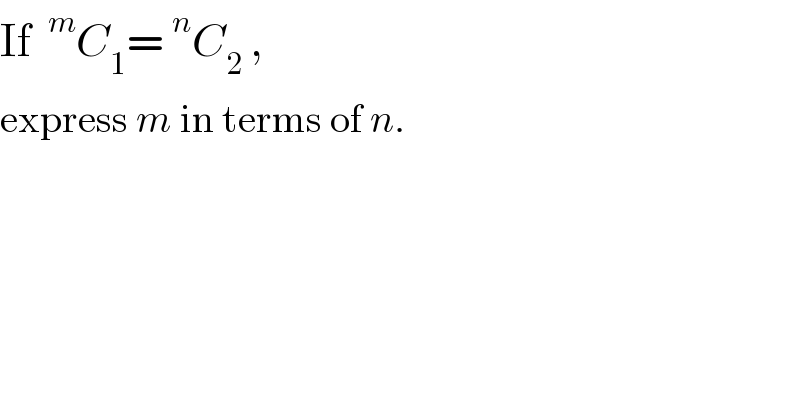
Question Number 114943 by ZiYangLee last updated on 22/Sep/20

$$\mathrm{If}\:\:^{{m}} {C}_{\mathrm{1}} =\:^{{n}} {C}_{\mathrm{2}} \:, \\ $$$$\mathrm{express}\:{m}\:\mathrm{in}\:\mathrm{terms}\:\mathrm{of}\:{n}. \\ $$
Answered by Dwaipayan Shikari last updated on 22/Sep/20

$$\frac{{m}!}{\mathrm{1}!\left({m}−\mathrm{1}\right)!}=\frac{{n}!}{\mathrm{2}!\left({n}−\mathrm{2}\right)!} \\ $$$${m}=\frac{{n}\left({n}−\mathrm{1}\right)}{\mathrm{2}} \\ $$
Commented by ZiYangLee last updated on 26/Sep/20

$$\mathrm{Tks} \\ $$
